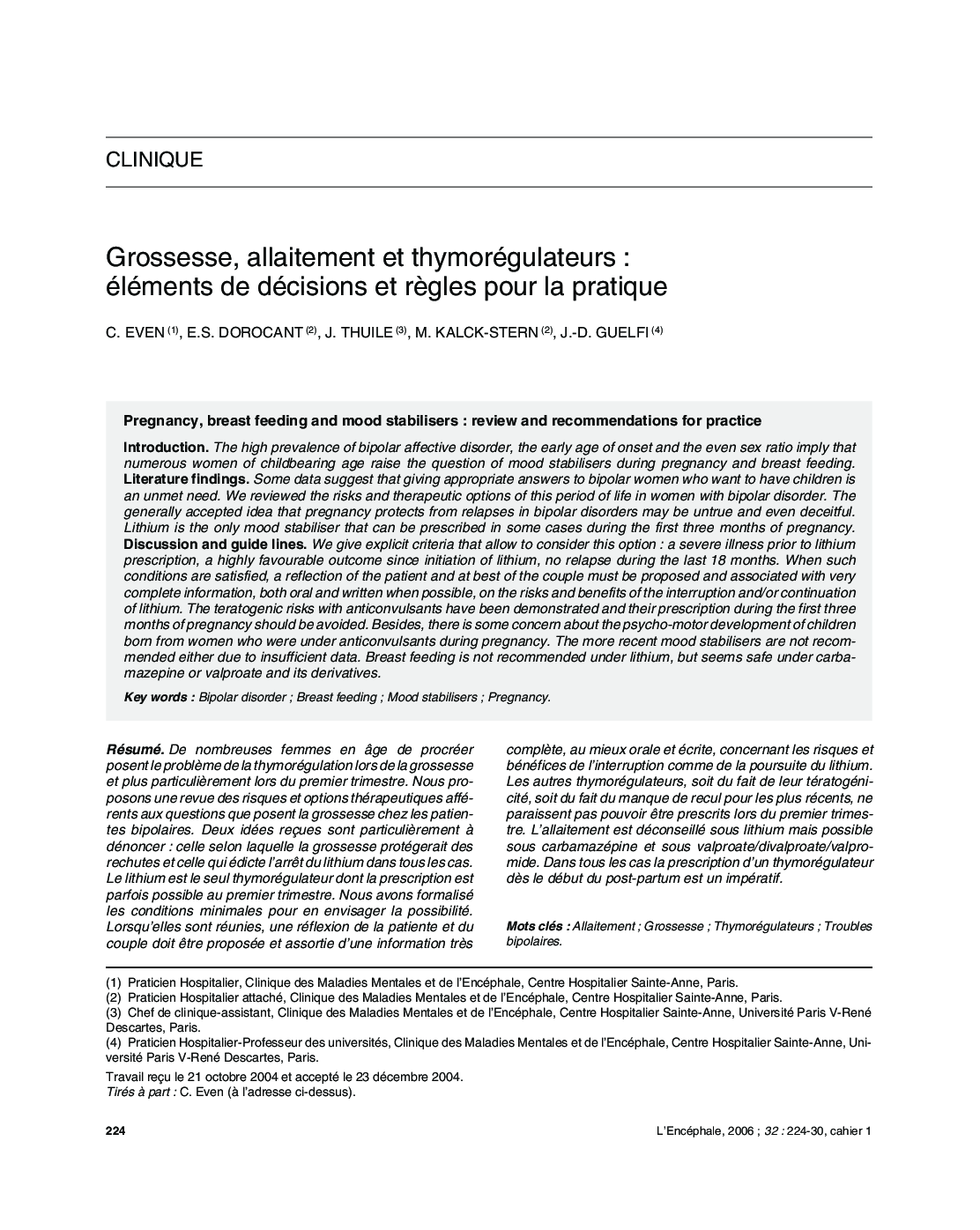| کد مقاله | کد نشریه | سال انتشار | مقاله انگلیسی | نسخه تمام متن |
|---|---|---|---|---|
| 4183367 | 1277266 | 2006 | 7 صفحه PDF | دانلود رایگان |

RésuméDe nombreuses femmes en âge de procréer posent le problème de la thymorégulation lors de la grossesse et plus particulièrement lors du premier trimestre. Nous proposons une revue des risques et options thérapeutiques afférents aux questions que posent la grossesse chez les patientes bipolaires. Deux idées reçues sont particulièrement à dénoncer : celle selon laquelle la grossesse protégerait des rechutes et celle qui édicte l'arrêt du lithium dans tous les cas. Le lithium est le seul thymorégulateur dont la prescription est parfois possible au premier trimestre. Nous avons formalisé les conditions minimales pour en envisager la possibilité. Lorsqu'elles sont réunies, une réflexion de la patiente et du couple doit être proposée et assortie d'une information très complète, au mieux orale et écrite, concernant les risques et bénéfices de l'interruption comme de la poursuite du lithium. Les autres thymorégulateurs, soit du fait de leur tératogénicité, soit du fait du manque de recul pour les plus récents, ne paraissent pas pouvoir être prescrits lors du premier trimestre. L'allaitement est déconseillé sous lithium mais possible sous carbamazépine et sous valproate/divalproate/valpromide. Dans tous les cas la prescription d'un thymorégulateur dès le début du post-partum est un impératif.
IntroductionThe high prevalence of bipolar affective disorder, the early age of onset and the even sex ratio imply that numerous women of childbearing age raise the question of mood stabilisers during pregnancy and breast feeding.Literature findingsSome data suggest that giving appropriate answers to bipolar women who want to have children is an unmet need. We reviewed the risks and therapeutic options of this period of life in women with bipolar disorder. The generally accepted idea that pregnancy protects from relapses in bipolar disorders may be untrue and even deceitful. Lithium is the only mood stabiliser that can be prescribed in some cases during the first three months of pregnancy.Discussion and guide linesWe give explicit criteria that allow to consider this option : a severe illness prior to lithium prescription, a highly favourable outcome since initiation of lithium, no relapse during the last 18 months. When such conditions are satisfied, a reflection of the patient and at best of the couple must be proposed and associated with very complete information, both oral and written when possible, on the risks and benefits of the interruption and/or continuation of lithium. The teratogenic risks with anticonvulsants have been demonstrated and their prescription during the first three months of pregnancy should be avoided. Besides, there is some concern about the psycho-motor development of children born from women who were under anticonvulsants during pregnancy. The more recent mood stabilisers are not recommended either due to insufficient data. Breast feeding is not recommended under lithium, but seems safe under carbamazepine or valproate and its derivatives.
Journal: L'Encéphale - Volume 32, Issue 2, April 2006, Pages 224-230